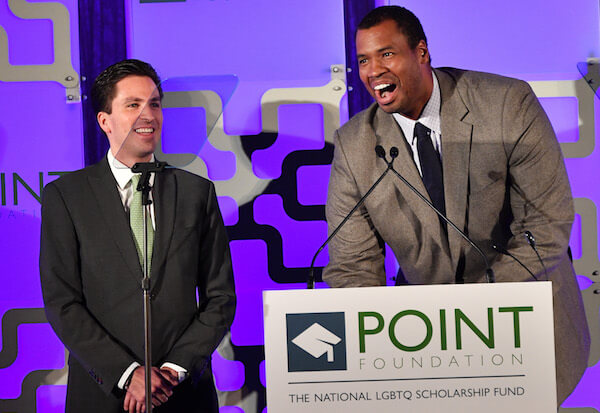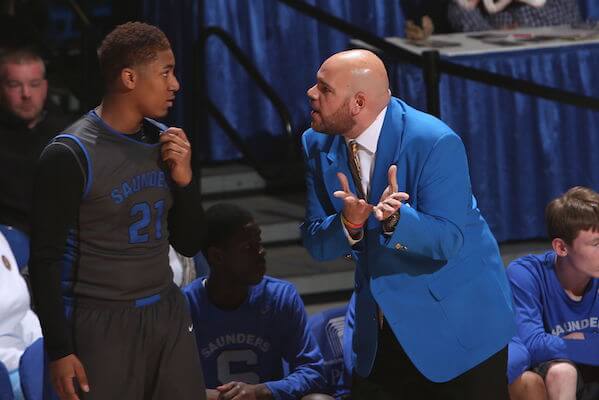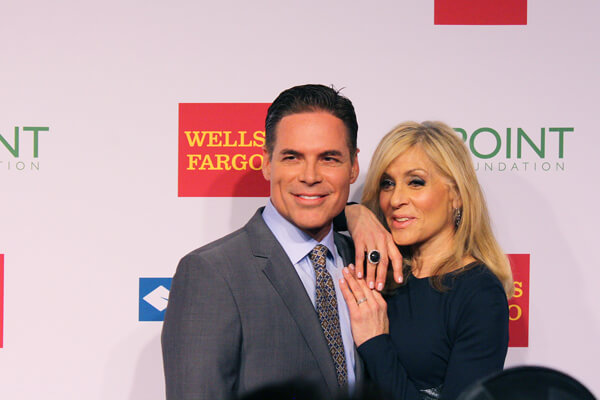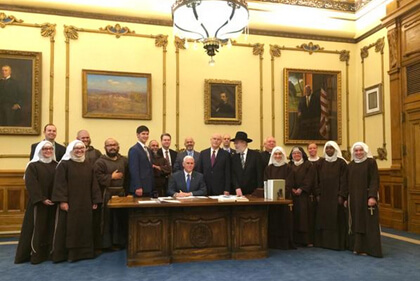ILLUSTRATION BY MICHAEL SHIREY
“I’m a 34-year-old NBA center. I’m black. And I’m gay.”
So began Jason Collins’ cover essay in the May 6 issue of Sports Illustrated, in which he became the first player in what are considered the four major North American male professional leagues — the National Basketball Association, the National Football League, Major League Baseball, and the National Hockey League — to come out as gay while still an active player.
An All-American in his days at Stanford University, Collins, since 2001, has played professional ball for the Nets, while they were still in New Jersey, the Memphis Grizzlies, the Minnesota Timberwolves, the Atlanta Hawks, the Boston Celtics, and the Washington Wizards.
The Impact of Jason Collins Coming Out
But, he is also currently a free agent, with his future in the NBA uncertain. He’s had a career lasting more than a decade in the league — and made more than $30 million in the process — but has never been a star, averaging less than seven points a game in every season, and just a fraction of that in the past half-dozen. At seven feet, Collins is, according to USA Today sportswriter Jeff Zillgitt, a tall player “in a league short on big men,” whose “defense has allowed him to stick around.”
With plenty of stories about his coming out beginning with some variation on the line, “Who is Jason Collins?,” a fair question to ask is how much impact his example will have on the image of gays in professional sports.
At the other end of the spectrum, some have questioned why Collins’ action has generated so much attention after decades of other athletes — like swimmer Greg Louganis and boxer Orlando Cruz in individual sports and women such as tennis legend Billie Jean King and three-time WNBA most valuable player Sheryl Swoopes — doing exactly the same thing.
The May 6 cover of Sports Illustrated.
Neither of those questions, however, diminishes the overwhelmingly positive media sensation Collins created by going public in Sports Illustrated. As with the early years of the debate about gays in the military, discussions of team athletes coming out have often devolved into snickering about how teammates would feel about sharing a shower room with them. The Wizards quickly put that to rest.
“We are extremely proud of Jason and support his decision to live his life proudly and openly,” Ernie Grunfeld, the team’s president, said in a written statement. “He has been a leader on and off the court and an outstanding teammate throughout his NBA career. Those qualities will continue to serve him both as a player and as a positive role model for others of all sexual orientations.”
His teammates took to the Twittersphere to add their support. Bradley Beal, a 19-year-old rookie drafted third overall in last year’s NBA draft, wrote, “Proud of @jasoncollins34 for expressing his feelings! Great teammate, mentor and better person !!”
Jan Vesely, picked sixth in the 2011 draft by the Wizards, tweeted, “I appreciate you for coming out. I am sure it takes a lot of courage to do so. I am proud of you. Great teammate!”
The league itself also acted quickly to support Collins, with David Stern, the commissioner, issuing a statement saying, “Jason has been a widely respected player and teammate throughout his career and we are proud he has assumed the leadership mantle on this very important issue.”
And some of the NBA’s biggest stars, as well, rallied to Collins’ side. Kobe Bryant, the Los Angeles Lakers shooting guard, tweeted, “Proud of @jasoncollins34. Don’t suffocate who u r because of the ignorance of others #courage #support.”
Nike, with whom Collins has an endorsement deal, challenged a longstanding assumption that a gay player would have problems with corporate sponsorship. “Jason is a Nike athlete,” it said in a release. “We are a company committed to diversity and inclusion.”
Politicians got in on the act, too. President Barack Obama phoned him hours after the Sports Illustrated story went live online. The White House said the president wanted to “express his support” and tell Collins “he was impressed by his courage.” Former President Bill Clinton, whose daughter Chelsea was at Stanford with Collins, tweeted, “I’m proud to call Jason Collins a friend. http://wjcf.co/154piCi.”
In his Sports Illustrated essay, Collins wrote that when he came out last year to his twin Jarron, who also played in the NBA, his brother was “astounded,” but quickly adjusted to the news. Jarron, also writing in the magazine, said, “I’ve never been more proud of him.”
To be sure, not all of the reaction was positive. Chris Broussard, a commentator on ESPN, took out after Collins for his expression of Christian faith in the Sports Illustrated piece — even as he sat across from with his out gay ESPN colleague LZ Granderson. “Personally I don’t believe that you can live an openly homosexual lifestyle or an openly premarital sex between heterosexuals,” Broussard said. ”If you’re openly living that type of lifestyle, the Bible says you know them by their fruits, it says that’s a sin… I would not characterize that person as a Christian because I don’t think the Bible would characterize them as a Christian.”
The sports world, however, has in recent years become a less hospitable place for open expressions of homophobia. When cornerback Chris Culliver said that if any of his teammates were gay “they gotta get up outta here” in the days leading up to his San Francisco 49ers playing in this year’s Super Bowl, he was immediately forced to backtrack. “The derogatory comments I made yesterday were a reflection of thoughts in my head, but they are not how I feel,” Culliver said.
Straight pro football players Chris Kluwe of the Minnesota Vikings and Brendon Ayanbadejo of the Baltimore Ravens snagged a good deal of favorable comment over the past year for their outspoken support for the LGBT community and the right of same-sex couples to marry — even if both now hint that their advocacy led to their post-season release by their respective teams.
The sense that professional sports could for some time have been pushed to allow more space for players to be themselves has led some in the gay community to question how laudatory Collins’ move was.
“Did Collins have to wait until his career might be over?,” asked Josh Barro, writing on Bloomberg View. Noting that Collins’ career playing basketball goes back two decades to his time in high school, Barro argued he squandered his chance to have greater and earlier impact — and that other bigger names who remain in the closet simply aren’t stepping up as they should. “A main reason professional sports (especially male team sports) have remained a bastion of homophobia is that gay players have failed to show leadership by coming out and insisting on acceptance,” he wrote. “By coming out, Collins is fulfilling an obligation to lead — belatedly.”
Ayanbadejo made headlines earlier this year when he said that four NFL players are preparing to come out — a prediction he has since pulled back from. Responding to Ayanbadejo’s flip flop, Wade Davis, an out gay former NFL player who now works at New York’s Hetrick-Martin Institute serving LGBT youth, told OutSports.com, “The problem is that you have straight people speaking on the behalf of these closeted gay athletes, instead of letting the gay athletes speak for themselves.”
Dating back nearly four decades, some LGBT athletes have been speaking for themselves. In was in 1977 that Dr. Renée Richards won a ruling from New York’s highest court enabling her to play tennis as a woman in the US Open two years after undergoing gender reassignment surgery. A 1981 palimony suit forced tennis great Billie Jean King to acknowledge that she is a lesbian. That was the same year that a younger tennis star, Martina Navratilova, also came out. A host of WNBA players have come out — most famously, Sheryl Swoopes of the Houston Comets in 2005, and most recently, Phoenix Mercury rookie Brittney Griner.
Star male athletes coming out have been few and far between, though in a sport that is arguably the most imbued with macho overtones, Orlando Cruz, a Puerto Rican boxer who is currently ranked number four among featherweights by the World Boxing Organization, made headlines late last year. Most who have come out did so after retiring — including the NFL’s Dave Kopay, baseball’s Billy Bean, and the NBA’s John Amaechi. Retired Olympic swimming star Greg Louganis caught uninformed flak when he came out, not for acknowedging he is gay but rather for not earlier disclosing his HIV-positive status to competitors who shared a pool with him.
Given the kind of money involved with the big four men’s sports leagues — in terms of salaries and television rights — and the stereotype that gay men do not make for good athletes (a prejudice lesbians have never faced), it is hardly surprising that Collins’ story has made a big splash. In Sports Illustrated, Navratilova acknowledged as much, writing of Collins, “He is the proverbial ‘game-changer.’ One of the last bastions of homophobia has been challenged. How many LGBT kids, once closeted, are now more likely to pursue a team sport and won't be scared away by a straight culture?”
Jon Wertheim, one of the Sports Illustrated reporters who sat down with Collins, addressed how the Wizard player neatly fits the jock stereotype, writing, “He’s been a bruising player, an enforcer who’s laid out players, dispensed his share of trash talk, drawn technicals — in short, whose style splinters every shabby stereotype of gay men being soft.” Wertheim, in fact, asked Collins whether his aggressive style of play represented some form of overcompensation, to which the player smiled and said “he’ll get back to us on that one.”
But while challenging homophobia and shattering stereotypes win cheers in the gay community, such actions can also cause uneasiness. J. Bryan Lowder, a gay writer on Slate.com, was not among those who hailed Collins as a hero for coming out. “Collins makes the classic maneuver of exempting himself from the dreaded gay ‘LABEL’ (I’m never sure what that means) and then spends multiple paragraphs telling us how butch and eager to foul he is,” Lowder wrote. “At this point, I’m waiting for it, and Collins delivers: ‘I go against the gay stereotype, which is why I think a lot of players will be shocked: That guy is gay?’”
What Lowder’s comments and those from partisans of King, the WNBA, and featherweight boxing, as well, prove, as much as anything else, is that despite the widespread praise Collins has won, even the LGBT community is not unified in its reaction. In fact, some may even agree with that unrivaled arbiter of contrarian views, Stephen Colbert, who was biting in his observation that Sports Illustrated had buried the lead in its Collins story.
“That's right: He came out as black and gay,” Colbert told his Nation. “Even more shocking, he came out as a player for the Washington Wizards. You gotta wonder how his parents took it.”




































